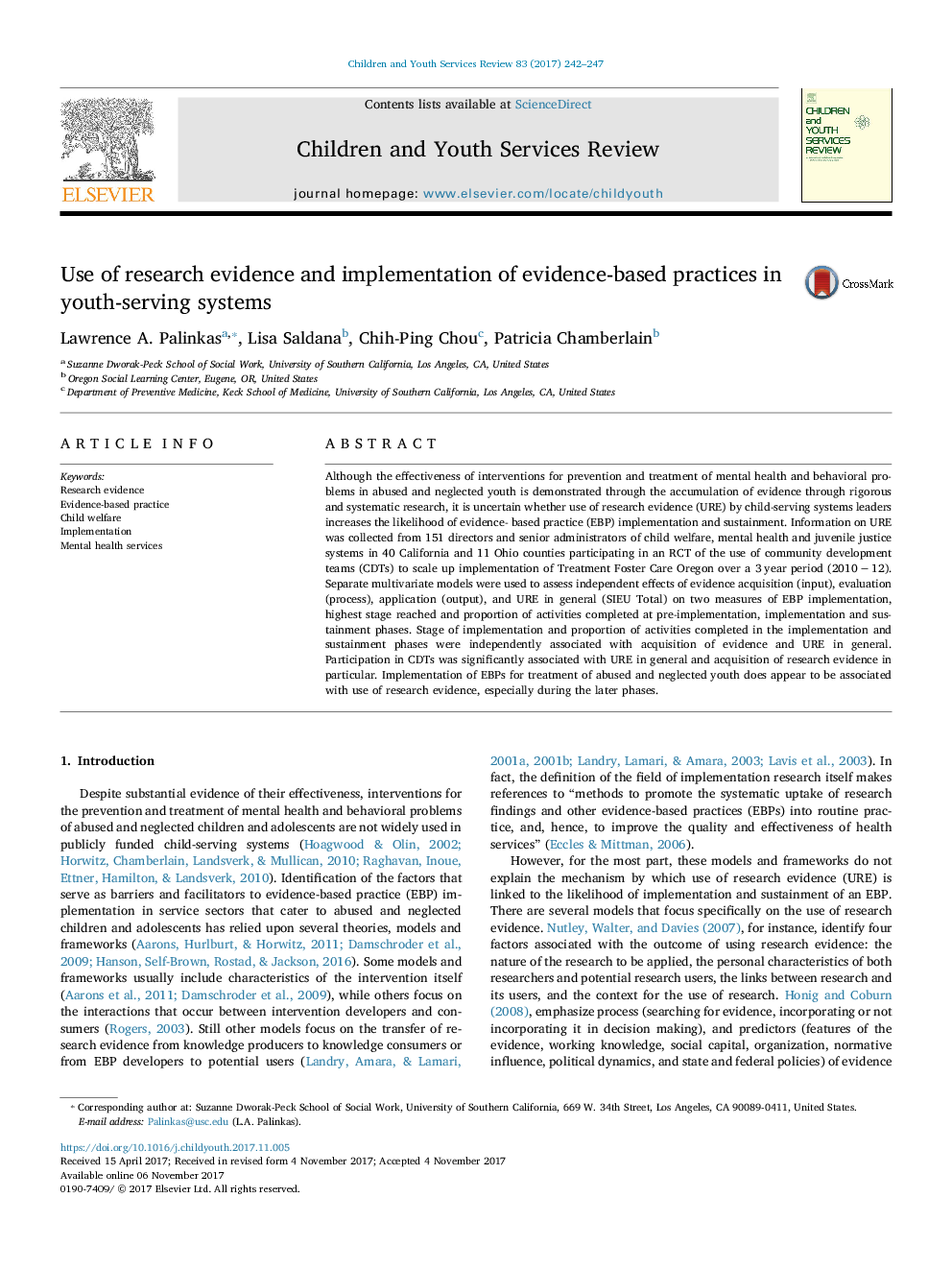ترجمه فارسی عنوان مقاله
استفاده از شواهد تحقیق و اجرای شیوه های مبتنی بر شواهد در سیستم های خدمات جوانان
عنوان انگلیسی
Use of research evidence and implementation of evidence-based practices in youth-serving systems
| کد مقاله | سال انتشار | تعداد صفحات مقاله انگلیسی |
|---|---|---|
| 157713 | 2017 | 6 صفحه PDF |
منبع

Publisher : Elsevier - Science Direct (الزویر - ساینس دایرکت)
Journal : Children and Youth Services Review, Volume 83, December 2017, Pages 242-247
ترجمه کلمات کلیدی
شواهد پژوهش تمرین مبتنی بر شواهد، رفاه کودکان، پیاده سازی، خدمات بهداشت روان،
کلمات کلیدی انگلیسی
Research evidence; Evidence-based practice; Child welfare; Implementation; Mental health services;

